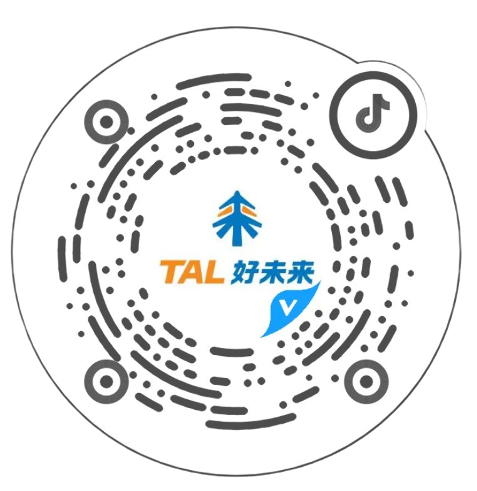




From May 16th to 18th, the International Conference on Artificial Intelligence and Education was held in Beijing. The conference formulated the "Beijing Consensus," which pointed out the development direction of education in the artificial intelligence era, outlined the blueprint for the development of education in the artificial intelligence era, and proposed the "Artificial Intelligence + Education" global cooperation development framework.
Over the course of three days, representatives from many countries participating in the conference engaged in discussions about the significance of "empowering artificial intelligence with education and vice versa," as well as building a system for the integrated development of artificial intelligence and education that is human-centered, human-machine collaborative, coordinated, and ethical.
Artificial intelligence is an effective means to reconstruct the education ecosystem
Currently, the new generation of artificial intelligence is flourishing and accelerating in its development worldwide, demonstrating characteristics such as deep learning, interdisciplinary integration, human-machine collaboration, collective intelligence, and autonomous control, continuously injecting new momentum into economic and social development.
Experts at the conference generally agreed that education, as an important application field of artificial intelligence, has been substantially impacted by the development of artificial intelligence and the dawn of the intelligent era. This has not only brought about a holistic impact on the content, patterns, methods, systems, and evaluation of education, but also brought new opportunities for reshaping the form and strengthening the essence of education.
"Artificial intelligence is an effective means to reconstruct the education ecosystem." Chen Baosheng, Minister of Education, stated that the extensive and profound application of artificial intelligence technology in education will completely change the spatial and supply levels of education, achieve information sharing, data integration, collaborative services, and intelligent services, promote changes in the overall operation process of education, make personalized and diversified education under a large-scale premise possible, and then construct a new flexible, open, and lifelong personalized education ecosystem.
"Currently, more than 200 million children around the world find it difficult to access educational resources and opportunities. We need to better leverage artificial intelligence technology to revolutionize education development," said Stefania Giannini, Assistant Director-General for Education at UNESCO. "Dialogues on artificial intelligence policies at the national and international levels are of great significance for the development of artificial intelligence and inclusive education."
According to Zhejiang University President Wu Zhaohui, artificial intelligence is driving the continuous establishment of new interactive spaces for teaching and learning. On the one hand, interaction between the physical world and the virtual information world creates new space, as various artificial intelligence technologies such as speech and image recognition, wearable devices, and virtual reality imaging penetrate into classrooms, leading to changes in existing teaching media, teacher-student evaluation feedback, and deep learning. On the other hand, students using intelligent machines for auxiliary learning interaction can create new space.
Rationally promote the integration and coexistence of artificial intelligence and education
On the 18th, during the on-site observation session, reporters visited Beijing No.11 School, where several students were conducting a study on the dynamics of gliders with the help of image recognition for Magnus effect. The students used cameras and image tracking technology to establish a physical model to explain the dynamics of the glider. "Image tracking technology in the field of artificial intelligence is an important tool for research," said one student.
In Beijing City 12th High School, after introducing artificial intelligence and other technologies to the campus, teachers from various subjects have innovated their teaching methods. The Chinese language teacher for the high school's sophomore class, Leilei Shi, attempted to use the "Changyan Smart Classroom" software for interactive discussions on ancient Chinese literature such as the poem "Returning Home." "Not only can teachers and students engage in interactive discussions, but teachers can also see real-time feedback from each student on the teaching equipment platform to adjust teaching strategies at any time, improving classroom learning efficiency."
At the Future School Research Center in Haidian District, Beijing, inside the artificial intelligence laboratory, a large number of macroscopic and microscopic experiments have already been carried out using artificial intelligence technology, including physics and chemistry experiments commonly conducted in real school laboratories, all of which can be operated step by step online, making the entire experiment process vivid and dynamic.
The development of new information technologies has brought new opportunities for Chinese education. Currently, the national internet access rate for primary and secondary schools is 97.6%, with a 93.4% coverage rate for multimedia classrooms and over 400,000 children in remote and impoverished areas benefiting from the full coverage of digital educational resources, establishing a basic public service system for digital educational resources, with more than 60% of teachers and nearly 50% of students accessing online learning spaces, gradually achieving the goal of "every school using a platform, every class having resources, and every person having space."
Empower the future through the integration of artificial intelligence and education
What form will intelligent education take? What technological conditions are necessary for it? How should it be organized and operated? It is explained that by the end of 2020, the Ministry of Education will launch the construction of more than 10 smart education demonstration zones, prioritizing the exploration of practice in the integration and innovative development of artificial intelligence and education, accumulating advanced experiences and excellent cases that can be promoted, and leading the education reform in the intelligent era. By 2020, the plan is to establish 50 artificial intelligence colleges, research institutes, or interdisciplinary research centers, cultivate innovative research teams, and train high-level talent in artificial intelligence.
"Beijing will further promote the popularization of artificial intelligence education and practical activities in primary and secondary schools, implement engineering projects to enhance the literacy of young people in artificial intelligence, and comprehensively reserve future talents," said Liu Yuhui, Deputy Secretary of the Beijing Municipal Party Committee's Education Working Committee and Director of the Municipal Education Commission.
Regarding the mutual empowerment and development of artificial intelligence and education, conference delegates generally agreed that technological ethics cannot be ignored.
"AI is not meant to replace humans, but rather should be combined with humans to empower education," said Zhang Bangxin, the founder of TAL Education Group. "Education will always involve emotional communication and the transmission of love."
"While adapting to change, it is essential to respect the essence of education, follow the laws of education and talent development, pay more attention to personalized, diverse, and adaptable learning, focus on efficient teaching that involves human-machine collaboration, and emphasize the cultivation of core competencies, as well as the healthy growth and comprehensive development of everyone," said Wang Ning, Secretary of the Beijing Municipal Party Committee's Education Working Committee.
"This conference has reached many important consensuses and raised many more questions. While the conference may have ended, the 'planning of education in the artificial intelligence era' has just begun," stated Tian Xuejun, Deputy Minister of Education and Director of the Chinese National Committee for UNESCO, at the closing ceremony.